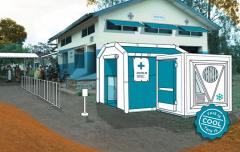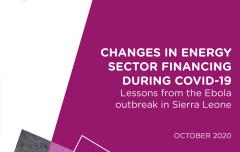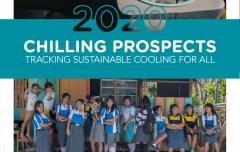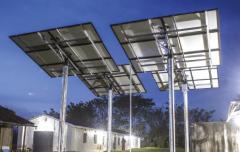How SEforALL’s work supports resilient, equitable healthcare systems
Like last year, World Health Day is occurring amidst a global fight against COVID-19. With the pandemic ongoing for more than a year now, it’s fair to say that everyone has gained a heightened appreciation for healthcare services – whether it’s the ability to diagnose people with the virus, to treat those with severe symptoms, or to roll-out the vaccines that will hopefully protect us and let us return to a feeling of ‘normal’.
This year’s theme for World Health Day is “Together for a fairer, healthier world.” SEforALL believes that clean and affordable energy for all is essential to creating a more equitable and healthier world.
When the pandemic fell upon us last year, we were already advocating the importance of sustainable energy for delivering quality healthcare. For example, our report Lasting Impact: Sustainable Off-Grid Solar Delivery Models to Power Health and Education from 2019 advised decision-makers on potential avenues for affordably electrifying healthcare facilities in rural areas.
Meanwhile, since its inaugural edition in 2018, our Chilling Prospects report has highlighted that access to sustainable cooling is essential for storing and distributing medicines and vaccines, something that is often taken for granted, but it is major challenge when it comes to healthcare in developing countries.
Needless to say, our focus on the intersection between energy and healthcare has intensified in the past 14 months. For this, we must thank our core funders who supported our pivot to targeted work that would contribute to the global COVID-19 response.
Here’s a summary of some of our current and emerging work to support the healthcare response to COVID-19, but also to help countries establish resilient healthcare systems powered by sustainable energy for the long-term.
Powering Healthcare Solutions Catalogue - Introduced at the beginning of the pandemic, this catalogue helps connect stakeholders from the energy and health sectors with solutions providers, to help meet the energy needs of healthcare facilities in response to COVID-19 and beyond. The solutions provided represent a sample of a larger group of solution providers who can contribute to addressing this challenge.
Power Africa partnership – Building on our ongoing collaboration with Power Africa, and through a two-year, USD 1 million grant funded by the United States Agency for International Development (USAID), SEforALL and Power Africa have launched a new initiative to support African governments and the donor community to coordinate and assist national health facility electrification efforts.
As part of this partnership, we will ramp up our country-level support on healthcare electrification by advising governments and their development partners in a select number of countries. This advisory role will be informed by new data work to better understand where current healthcare electrification efforts are located and the impact they are having.
We will also be publishing a white paper promoting a service-based model to advance long-term sustainability of health facility electrification interventions.
Cooling and COVID-19 thought leadership – The 2020 edition of Chilling Prospects dedicated a chapter to highlighting the challenge of equitable vaccine distribution since countries suffering electricity access deficits don’t have refrigeration services to keep vaccines cool, i.e. cold chains. Later in the year, we explored the issue of cold chains for specific COVID-19 vaccines and provided recommendations on how to build them. This point, and the fact that a lack of sustainable cooling compounds health risks posed by COVID, were the focus of an opinion piece we co-authored called Access to climate-friendly cooling must underpin the COVID-19 response.
With a new version of Chilling Prospects due to be released in May, we will continue to lead the push for improved access to sustainable cooling, not only for the purposes of supporting a COVID-19 response, but to protect vulnerable populations from the multiple dangers of extreme heat.
Integrated energy planning – Putting insights contained in Chilling Prospects into practice, in the coming months we will be using a geospatial model to help the Governments of Nigeria and Sierra Leone evaluate the trade-offs of different approaches for rolling out a COVID-19 vaccine. This work will identify the constraints and opportunities around cold storage and transportation of vaccines, and their associated costs.
Photo credit: Asian Development Bank




